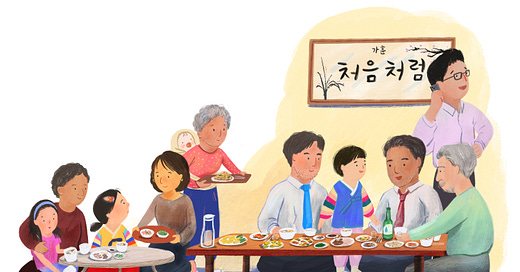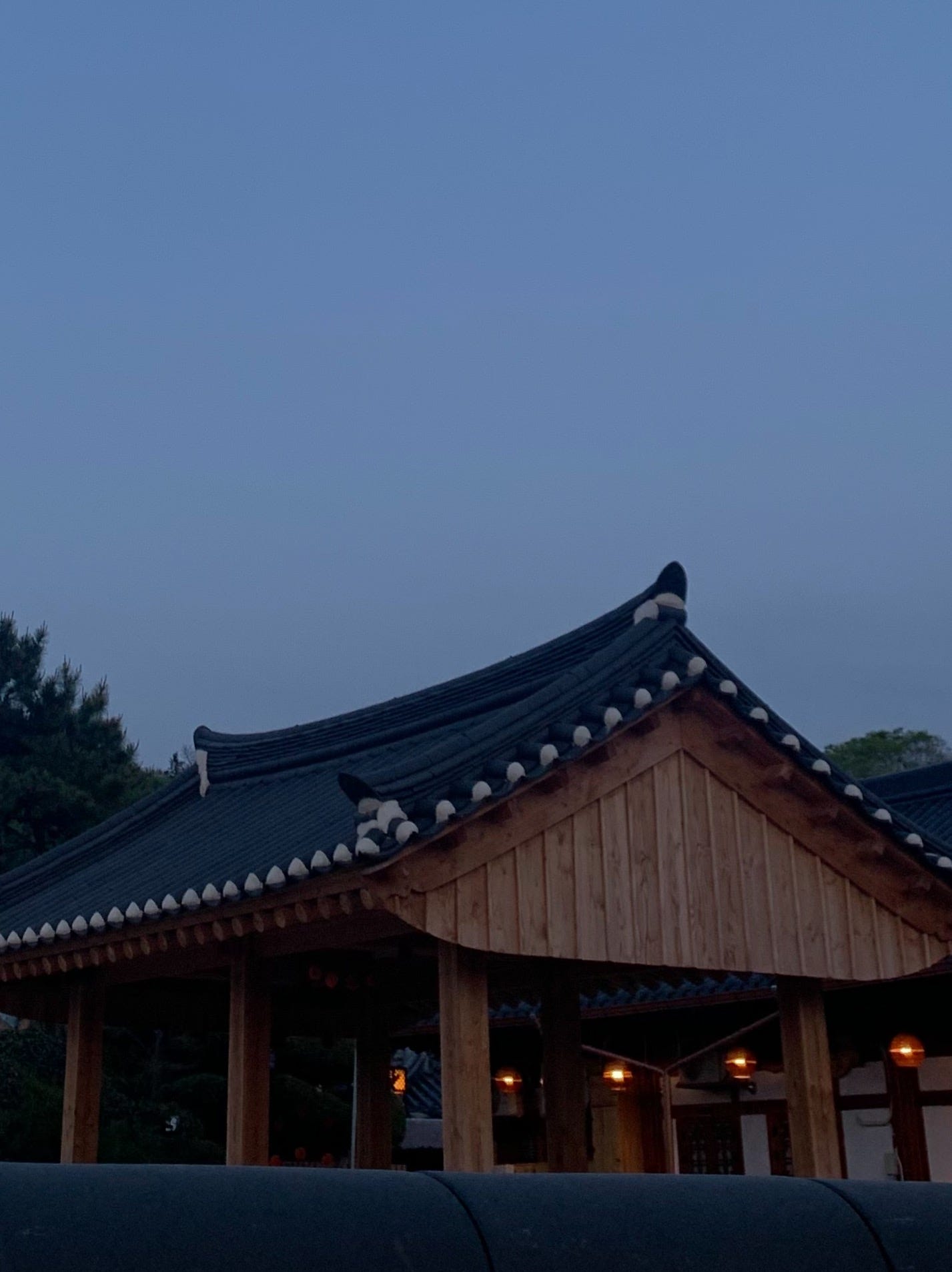I’ve been away from New York for a long time. For several reasons, including the process of applying for a new visa, I stayed at my family home in Korea for many months. It would be a lie to say I don’t enjoy being back. Korea is my home, where I was born, and where my family is. Nowhere in the world would make me feel more at home than my actual home, even if nearby grocery stores have kimchi for sale 24/7.
However, if you’re an artist, or a woman, or an unmarried woman, or an artist who is an unmarried woman, things get very complicated here. This trip made me realize once again what it means for me to choose New York over Seoul. Public hygiene, civic virtues, safety … the list can go on to discuss how Seoul could be a better place to live. Well, some might disagree with me because they are simply unaware of what I’ve noticed in Korea. The society is divided, just like the split section of the dining table in Seollal, where women and men sit separately. By age, gender, and socioeconomic status—discrimination was evident wherever I went.
By the time when I only had a month left to return to New York, I got excited. Despite the discrimination and inconvenience I would face as a foreign Asian woman, it felt like I could finally breathe and say whatever I wanted to say. Perhaps it was the suppression that destroyed me the most from being unable to freely speak my mind—opinions on society, politics, culture, and art.
Sadly, among all things, I felt most uncomfortable with the discrimination against women in Korea. Deep down on all the social and political issues, there were misogynistic ideas that had lasted and evolved from patriarchy and Confucianism. Women’s discomfort was not being openly discussed and, of course, not heard or resolved. Women were often pressured to sacrifice for the home and family, sticking to rigid gender roles. Social issues like low birth rates, toxic social media culture, and shopping culture were also blamed mostly on women.
I tried many times to bring it up in the conversation but was only followed by judgments for using the word “feminism,” which was considered taboo to say in public or even among your friends. It was quite impossible to say that you support gender equality and want a better world for women, for everyone, and for myself.
I love Korea. I love this country so much that it hurts badly to realize it might not be the best place for my growth. In 2021, I had the honor of publishing a children’s book about the invention of Hangul. The story of King Sejong is truly amazing, and it absolutely deserves attention and recognition. However, as someone who not only recognizes the beauty of our tradition but also the darker aspects of our modern culture, I felt bitter about merely praising Korean culture.
Living as a foreigner in a place where you are part of a not-so-respected minority means that, in any event, you will involuntarily act as the country’s rep. By that, you will face limits to being critical of your culture. What can you say when many curious eyes look at you, waiting for you to share something new and wonderful? Talk about giving a good first impression. As a Korean person, the first thing is to introduce and raise our country’s status, not to criticize it. I indeed expected better when BTS became popular in the US, but the truth is that still not many people know about our country.
Last month we had our biggest holiday, Seollal. It was amazing to be in Korea to celebrate this day since I’m usually in New York around this time of the year. The food was absolutely amazing; we ate Ddukguk and got a year older for the new year. Everything was wonderful until I was again reminded of everything that made me uncomfortable in Korea. Men are lounging in the living room, while women are in the kitchen. Plus many other things to follow from there.
Korea is not any better. We’re just like other people in the world—beautiful and wise but flawed, with lots of room for improvement. Frankly, women’s rights have a lot to work on in every single country in the world. Yet, the main reason I chose New York over Seoul is that I feel much safer expressing myself rather than constantly having to swallow my words to avoid any potential conflict or danger.
Of course, there are whole other things in addition to this that make me sleepless in New York. But at least being able to speak out about sensitive social issues makes a big difference. Many like-minded people in New York would agree and encourage me to do even more. Even the people who disagree would not affect me as much as those from Korean society.
I genuinely want Korea to do better so our children can have a better future. We have proven how capable we are of growing from painful history and spreading hope and wisdom to the next generation. It’s a paradox that despite the changes in society, conventional gender roles remain the same in Korea. The world has changed, and it should be the new norm that women have the autonomy to decide for themselves and unapologetically turn their plans into action.
To witness how misogyny affects or creates other social issues—toxic work culture, family dynamics, social hierarchy, ageism, elitism, chaebols, and capitalism—makes me concerned about what our future will look like.
I don’t want to see my mom overly sacrificing herself, or being a mom to my dad. Also to hear from my girlfriends that they are giving up their careers because they believe this is what happens automatically if you choose marriage. It’s devastating to hear every day about young girls having anorexia from watching K-pop stars, or at worse, to see men who didn’t even take a proper sex ed class enacting laws about female bodies.
My next assignment will be not minding wherever I am in the world to speak up about what I believe is right and important. Already, many courageous people are speaking up about women’s empowerment in Korea despite the threat and danger. (I mean, we’re already kind of living in a dystopian world.)
Now that I’m here in New York, I will find more ways, any small efforts, to help the children grow up in a safer society where they can freely express themselves and stay curious. Until no more brave girls are silenced and pressured with dirty aprons to dedicate their lives to cooking for guys and their friends and their families and their ancestors.










It can easily feel like you're betraying your people, your culture, by speaking out, pointing out imperfections and injustices. It takes great courage to do so. But by doing so you're actually being the best possible citizen and representative of where you come from. You're not averting your eyes. You're showing compassion and trying to make things—your entire society—better.